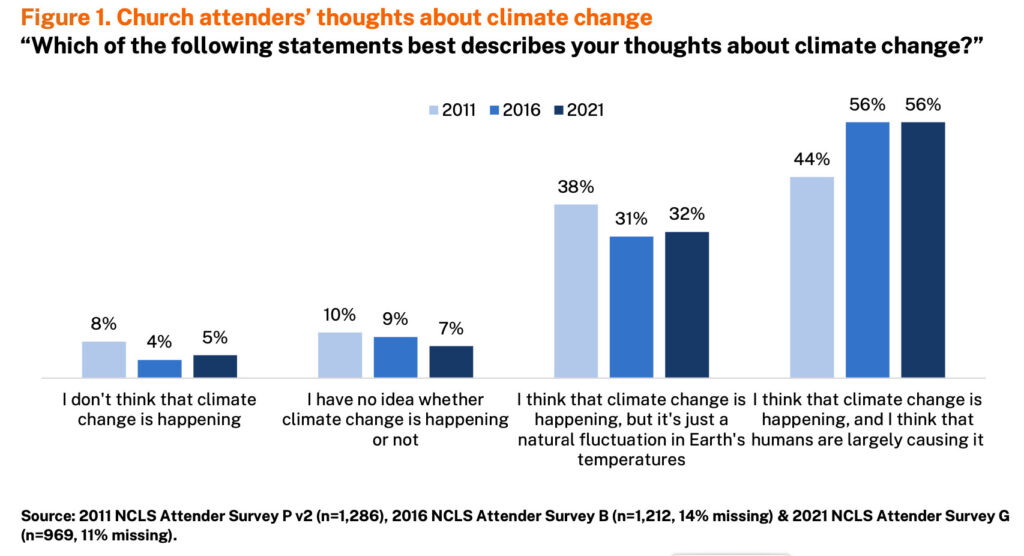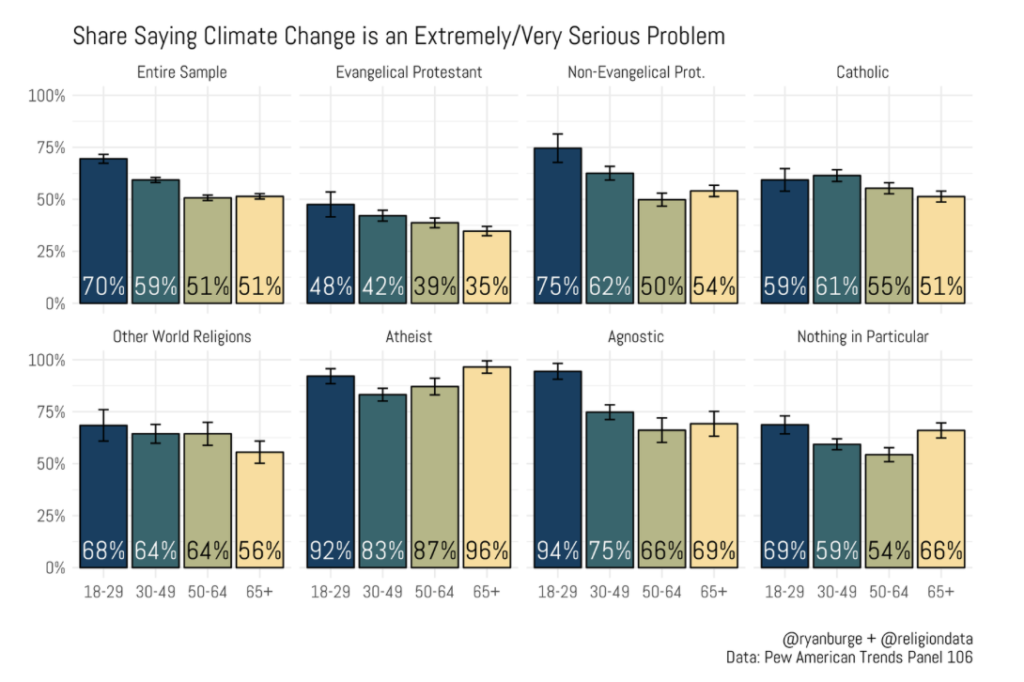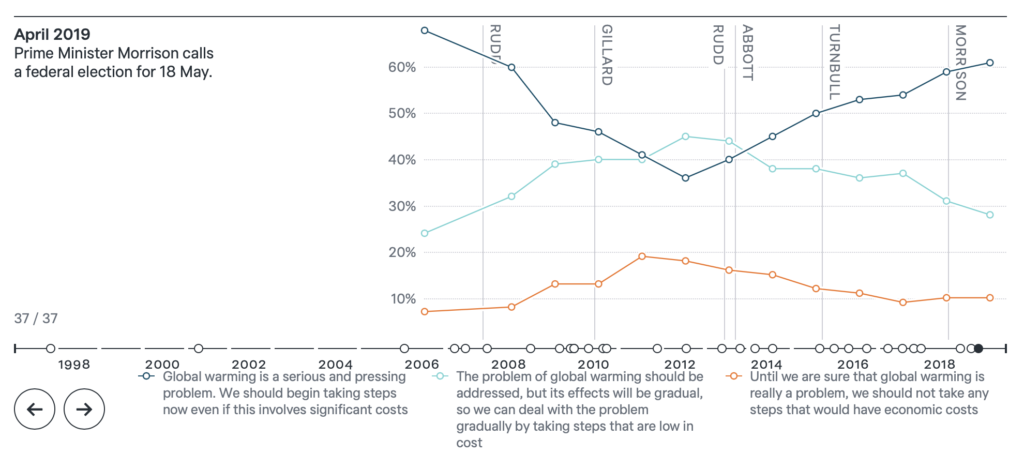As Australia – or part of it – swelters under a 40-degree-plus heatwave, this sort of day is likely one reason Christians have increasingly become believers in climate change caused by human activity.
This is reflected in results from the National Church Life Survey, which asked attendees about their view of climate change in 2011, 2016 and 2022/early 2022. Over half of those surveyed now agree that climate change is happening and is caused by human activity.

The NCLS survey also shows a majority of Christians feel a “moral duty” to do something about climate change. In the NCLS of 2021/2022, 18 per cent strongly agreed, and 41 per cent agreed with the statement, “I feel a moral duty to do something about climate change.”
A US survey cited by the US political scientist and pastor Ryan Burge showed that evangelicals were one of the most sceptical groups in the American population regarding climate change. Using data from the American Trends Panel (Wave 106), which was collected by the Pew Research Center in April of 2022, Burge produced this table.

However, Burge also tracked the politics of those surveyed and found Politics was a better indicator. “It’s not that evangelicals don’t care about climate change and atheists care a lot. It’s much simpler than that — Democrats believe climate change is a serious issue, and Republicans don’t.”
In any case, change is coming to US evangelicals. Younger evangelicals are more likely to believe that climate change is a serious or extremely serious problem.

But Australian Christian opinion taken overall would appear to be much closer to the wider community opinion. The Lowy Institute has tracked Australian opinion over time on Climate change. The changes in the 2011 and 2016 NCLS results are mirrored in the Lowy graphic. During those years Church goer opinion shifts in a similar way to community opinion

However, other polls show general community concern about climate change is consistently higher than the NCLS results. Ipsos had Australians concerned about climate change at 56 per cent in 2011 and 83 per cent in 2022.
This places Australian Christians as the majority concerned about climate change, but to a lesser degree than the general community, with the age and politics of churchgoers a factor – a position that feels intuitively correct.

